OSLO: Confronted by new evidence of global warming, will people react like frogs?Reuters | Thursday, 25 January 2007

According to an often-told story, a frog will try to jump out if you drop it into hot water but the hapless creature will stay, and eventually die, if you put it in a pan of cool water and slowly bring it to a boil.
A United Nations report to be released in Paris on February 2 will include the strongest warning yet that humans are stoking global warming that may cause colossal damage to nature if, like the doomed frog, they ignore rising temperatures.
Ex-US vice-president Al Gore tells the story with croaking cartoon frogs in his movie 'An Inconvenient Truth' to urge more action to save the planet. In his version, a hand dips in and rescues a swooning frog just as the water starts to bubble.
"It's important to rescue the frog," he says. And UN officials also sometimes mention the boiled frog as a cautionary tale of the dangers of human complacency about global warming.
There is only one problem – it's not true.
"The 'boiled frog'. . .is definitely an urban myth," said Victor Hutchison, a professor emeritus at the zoology department at the University of Oklahoma in the United States.
"I have investigated the thermal tolerance in reptiles and amphibians for many years. If one places the animal in a container and slowly heats it, the animal will at some point invariably try to escape," he said.
FLOODS, HEATWAVES
The UN report, by 2,500 scientists, will say there is at least a 90 per cent chance that human activities led by burning fossil fuels are the main cause of warming in the past 50 years.
The warming may cause ever more floods, heatwaves, droughts and rising sea levels by 2100.
Strengthening the conclusions of a 2001 report that blamed humans for warming, it will guide governments seeking to extend the UN's Kyoto Protocol for fighting warming beyond 2012.
Will the world's governments hop? If the much-maligned frog is smart enough to jump when the mercury rises, there must surely be hope for humans too?
Scientists' warnings about the risks of carbon dioxide have often gone unheeded. Swedish scientist Svante Arrhenius, a Nobel chemistry laureate, first pointed to a likely link between warming and industrial carbon dioxide emissions a century ago.
"This is a problem we have been aware of for a very long time and action on it is way overdue," said Naomi Oreskes, a history and science professor who specialises in climate change at the University of California in San Diego.
She said she liked asking friends, colleagues and family which leading US politician said: "This generation has altered the composition of the atmosphere on a global scale through radioactive materials and a steady increase in carbon dioxide from the burning of fossil fuels."
1965
"Almost invariably people guess Al Gore," she said. The right answer was President Lyndon Johnson, in a special message to Congress about pollution – on February 8, 1965.
President George W Bush, who acknowledges a link between rising temperatures and mounting carbon dioxide in the atmosphere, pulled out in 2001 from Kyoto under which most industrial nations have capped emissions.
He said caps would curb economic growth and Kyoto wrongly excluded developing nations from its first phase, to 2012. He is instead investing heavily in new clean energy technologies, from biofuels to hydrogen.
Kyoto obliges 35 developed nations to cut emissions of greenhouse gases – from factories, power plants and vehicles – by 5 per cent of 1990 levels by 2008-12. The United States emits about a quarter of all industrial greenhouse gases.
The UN climate panel's reports have spurred action in the past: the way to the 1997 Kyoto pact was paved by a 1995 report which concluded that the "balance of evidence" suggested humans were affecting the climate.
Most Kyoto nations agree that tougher action is now needed.
Yet in a world where millions of individuals are unable to quit smoking or avoid obesity, action to curb global warming seems a tall order, partly since it will affect future generations hardest.
And, like the fabled boiled frog, people may find it hard to tackle an invisible threat.
"Our evolutionary biology. . . equips us to respond far more easily and naturally to a threat from a snake, or a fang, or a claw or a spider than from a threat that can only be understood by the use of abstract reasoning," Gore said in a presentation in Oslo in 2006.
"It's not impossible, but it does take more time," he said.
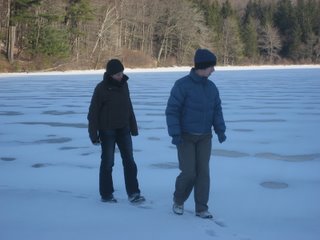

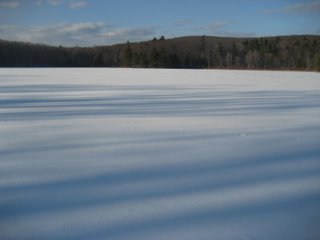
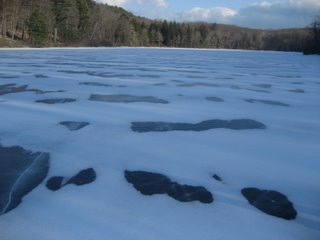
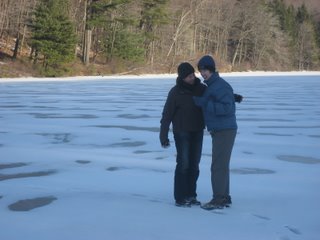
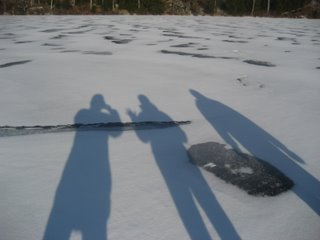



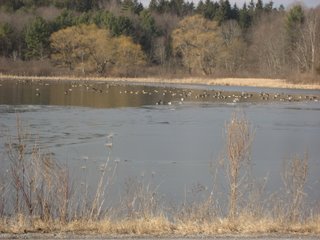
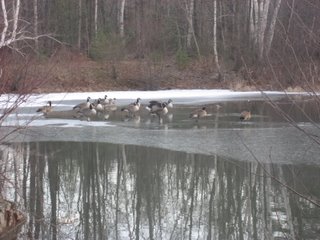


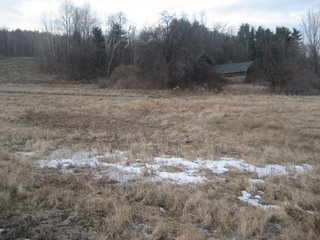
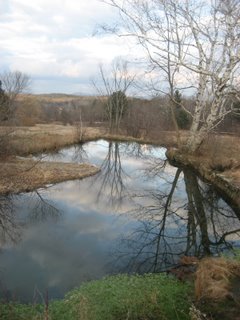















 Nori writes her name in the sand in Hindi.
Nori writes her name in the sand in Hindi.








